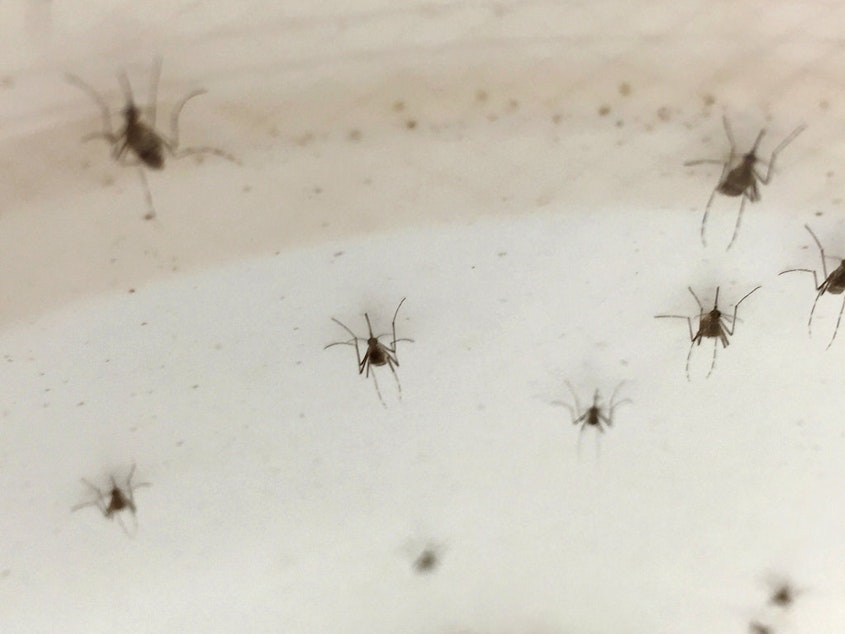Test all blood for Zika? FDA runs into criticism in Seattle

Testing blood donations for the Zika virus doesn’t make sense for places like Seattle.
That’s what Dr. James AuBuchon, president and chief executive of Bloodworks Northwest, told KUOW’s Kim Malcolm.
Blood centers around the nation will begin such testing under a Food and Drug Administration recommendation issued Friday. Previously, testing was recommended only for areas with Zika transmission.
AuBuchon disagrees with the expansion.
“Zika represents a risk only in areas where there are mosquitoes that can transmit it,” AuBuchon said.
Sponsored
But Washington and Oregon don’t have the right kinds of mosquitoes for that, he said.
“We are already deferring donors who have traveled to areas that have Zika activity,” he said. “Because of those two facts, there is no possibility of Zika transmission from blood that we are collecting in Washington and Oregon.”
AuBuchon says his organization will follow the rules -- at an extra cost of about $2.5 million.
One factor driving the cost is an FDA stipulation for testing of each individual sample. Before, AuBuchon said, his blood center would pool a group of six samples for testing. And that was for such pathogens as hepatitis C and HIV.
“This is unprecedented,” he said.
Sponsored
Zika is transmitted mainly by mosquitoes but can also be spread by sexual contact. It has been blamed for terrible birth defects.
Until recently, the only U.S. cases were among people who had traveled to affected parts of Central and South America or the Caribbean or had sexual contact with a traveler. Such cases have turned up in the Puget Sound region.
But now, there are mosquito-transmitted cases in Florida.
Asked if federal officials shouldn’t err on the side of caution, AuBuchon said there is legitimate concern for protecting the blood supply from Zika. But he noted recent efforts to halt the unrestrained growth of health spending.
“This approach appears to be excessive,” he said, “and does not make the best use of health care resources.”
Sponsored
In a statement announcing the recommendation, the FDA noted uncertainty surrounding the extent of Zika in the U.S. and how it spreads.
It said testing of blood in Florida and Puerto Rico “has shown to be beneficial in identifying donations infected with Zika virus.” It said expanded testing will continue until the risk is reduced.



